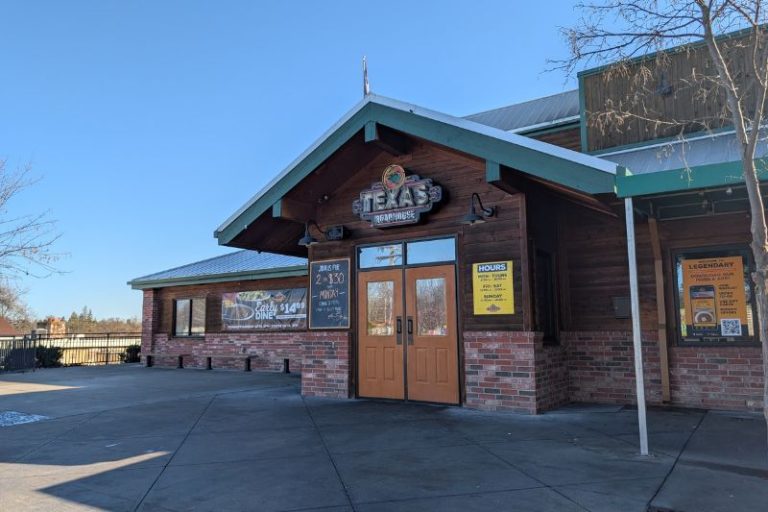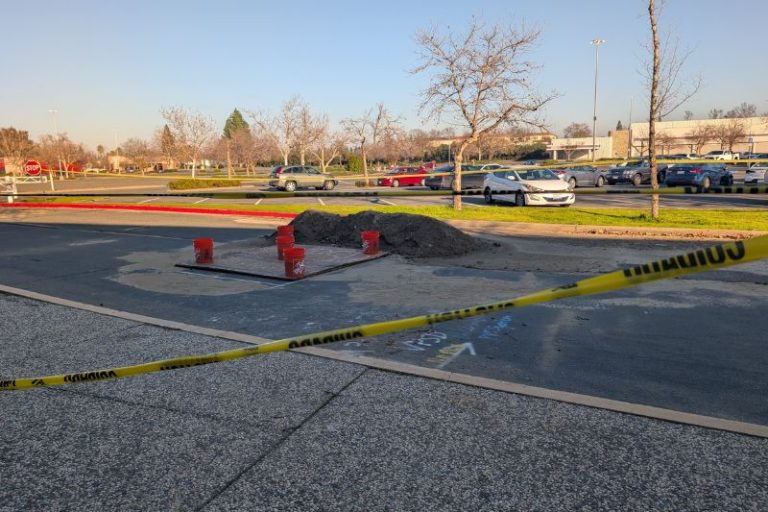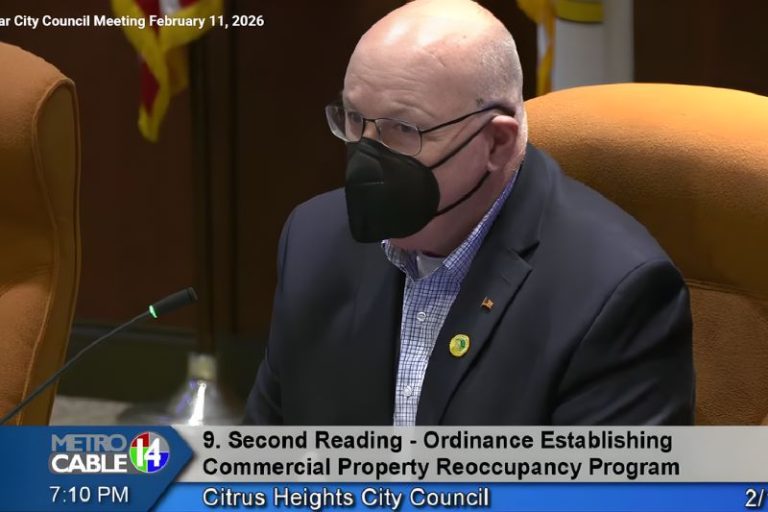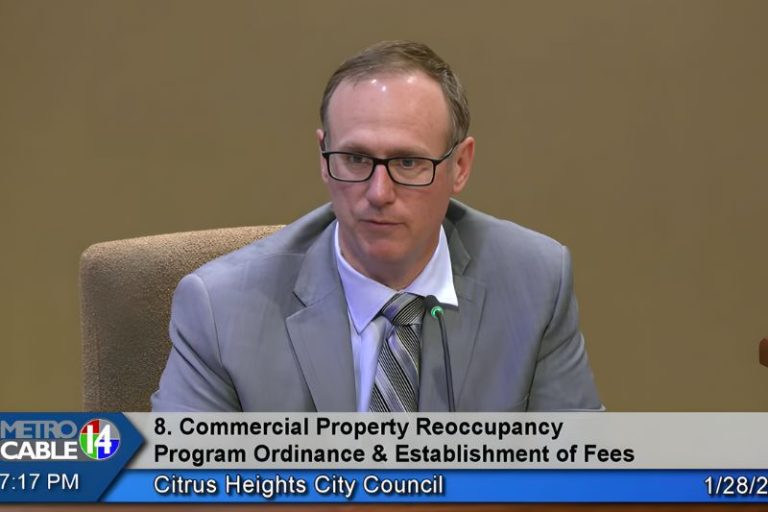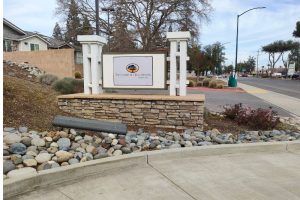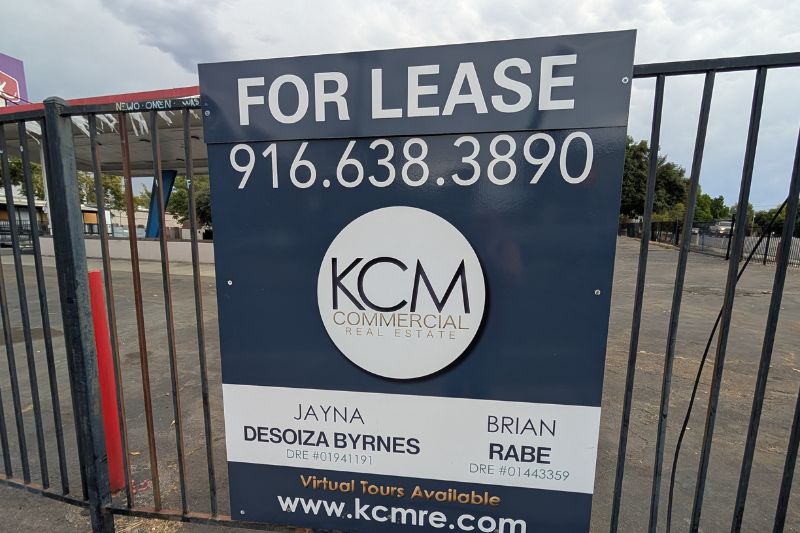
By Sara Beth Williams–
Citrus Heights residents spoke out about the city’s ongoing problem with vacant commercial properties, with hundreds weighing in through the latest FlashVote survey issued on Monday.
The latest survey asked residents of Citrus Heights several questions regarding how they felt about commercial vacancies in the city. A total of 422 residents participated, according to results released Wednesday. Sixty-eight percent of respondents said they have noticed vacant properties in the city and felt they were a “public problem.”
Additionally, 68 percent said vacant properties attract homeless encampments, and 72 percent said vacant properties detracted from the public image and livability of the city.
When asked how to address concerns of vacant properties, 82 percent of respondents said maintaining basic exterior upkeep was important, and 61 percent said exterior properties needed o maintain minimum security standards. Fifty percent said property owners should register with the city if their property is not meeting exterior upkeep and security standards, and 46 percent said the city should do inspections of vacant properties that are not meeting standards.
In comments at the end of the survey, many residents said absentee landlords are at the heart of the problem. Calls for stronger accountability were widespread, with suggestions ranging from code enforcement crackdowns to heavy fines and even legal action against neglectful owners. Others favored rewarding cooperative owners with fee reductions or public recognition while penalizing those who allow blight. While some argued only financial consequences will spur change, others warned excessive regulation could backfire and discourage future economic investment in Citrus Heights.
The city recently announced a drafted Commercial Property Reoccupancy ordinance and held a public workshop in early August, where multiple property owners spoke out against the drafted proposal as it was written at the time. When asked in the FlashVote survey whether they would support or oppose such an ordinance, 55 percent of 400 respondents said they would “strongly” support such an ordinance and 24 percent indicated they would “somewhat” support such an ordinance.
Related: What’s in the city’s drafted Commercial Property Reoccupancy ordinance? – Citrus Heights Sentinel
In comments, residents expanded on the concern between vacant buildings and homelessness, describing abandoned buildings as magnets for encampments, drugs, and fires. Several emphasized that keeping properties secure was essential, not only for business attraction but also for neighborhood safety.
Other respondents stressed that blighted properties hurt civic pride. Clean, well-kept storefronts were described as essential to attracting both shoppers and investors.
As in many past surveys, Sunrise Mall was often a topic of discussion among commenters, who repeatedly singled out the property as a symbol of decline. Some called for eminent domain and demolition, while others backed the long-proposed Sunrise Tomorrow mixed-use redevelopment plans. But many residents viewed the stalled progress at the mall as a test of the city’s ability to handle larger commercial challenges.
Additionally, high rents and permitting costs were cited as barriers for new tenants, contributing to continued vacancies, some claimed. Some suggested implementing reduced rents, waiving startup fees, and offering temporary tax incentives to attract entrepreneurs and make Citrus Heights more competitive with neighboring jurisdictions.
Several residents opposed approving new commercial centers altogether while older ones remain empty, urging the city to focus on reuse and redevelopment before building more. Ideas for repurposing vacant sites included turning vacant properties into housing, senior villages, mixed-use projects, and even police substations.
Confidence in city leadership was mixed among many commenters. Some applauded current efforts, while others accused officials of mismanagement and warned against policies that add more costs without getting to the root of the problem.
As one commenter summed up: “Vacant buildings don’t serve anyone—property owners lose income, businesses lose opportunity, and the community loses vibrancy.”
Several property owners and business leaders spoke out against the reoccupancy ordinance draft earlier in August. One property owner expressed significant concern over the potential of having to pay fees that range in the thousands of dollars. Another property owner challenged the city’s assertion that property owners aren’t attempting to fill vacancies in a timely manner.
Others worried that if property owners are required to pay thousands of dollars in fees annually, property owners will pass the high costs onto their tenants, resulting in higher rental fees.
Citrus Heights is not the only city considering a tax on vacant properties. Some Sacramento City Council members have also raised concerns about the high number of vacant properties and are proposing, for the second time, a vacant property tax, according to local news reports. The Sacramento City Council’s Law and Legislation Committee issued a Sept. 16 report that recommended addressing vacant properties and lack of development through a vacant property tax and through stronger code enforcement and vacant property monitoring. However, the process for implementing such a tax is in the early stages and would need to go before voters and pass with two-thirds of the vote.
The City of Citrus Heights has not announced when the Commercial Property Reoccupancy Ordinance draft will go before the City Council.
To voice your thoughts when future surveys are issued, sign up for future FlashVote surveys issued by the City of Citrus Heights here.
Want to share your thoughts with us? The Sentinel welcomes letters about local issues. To submit a letter to the editor or opinion column for publication, click here.

